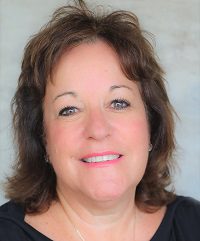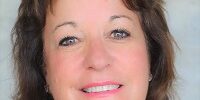Maddie Josephs, MS, MLS(ASCP)CM, ASCLS President

Of course, there have been many instances where laboratory professionals have had to show their resiliency in the event of disasters, including occurrences of domestic and foreign terrorism. Our colleagues who helped saved lives during the Las Vegas mass shooting, the Boston Marathon terrorism attack, and sadly, countless more, had to respond in a way that many of us have never—and hopefully never will—had to experience. That said, these last several months have posed challenges to all healthcare workers on the frontline as our entire healthcare system has been overwhelmed.
The countless narratives from physicians, nurses, and respiratory therapists cannot be diminished, and one cannot even fathom what they must have had to deal with while caring for some of the sickest patients. These challenges include laboratory diagnostics, as laboratory scientists have provided—and continue to do so—hundreds of thousands of test results allowing for better care of these patients. Besides delivering these critical answers to physicians, many other laboratory tests proved to be essential in monitoring prognosis for these critically ill patients. Furthermore, throughout this pandemic, conditions such as myocardial infarction, congestive heart failure, and end-stage renal disease did not take a vacation. Laboratory results continued to be reported 24/7 to aid in management of these conditions along with the emerging complications seen with SARS-CoV-2 infections.
To add insult to injury, laboratory scientists received very little acknowledgement with most of the public believing that the person collecting their nasopharyngeal swab at the many new “testing sites” were somehow providing their physicians with a test result. This misconception lead ASCLS members and staff to mount a public relations campaign of sorts to highlight the role of the laboratorian as part of the essential healthcare team. Letters to the editor of newspapers, social media posts, and several mentions during press conferences by Dr. Deborah Birx, coronavirus response coordinator for the White House Coronavirus Task Force, helped to emphasize the importance of our profession.
Still, medical laboratory scientists everywhere are still dealing with the fallout that comes with a pandemic, something that none of us, lab professionals or not, were prepared to deal with. We have seen various parts of the country experiencing the COVID surge with very little time to prepare for it in terms of staff and supplies. A colleague who is a laboratory director and fellow ASCLS member described to me some of the concerns and problems that arose for her. While her institution did not force furloughs, there have been many laboratories in that situation because of decreased outpatient testing and cancellation of elective surgeries. She also explained how her laboratory developed a plan to handle the surge. However, planning did not alleviate the issue surrounding testing supplies allocation and questionable results on some of the Emergency Use Authorization (EUA) tests. While challenging on both a personal and professional level, she and her staff worked hard, showed the resilience of medical laboratory professionals, and were able to create a system that worked for them. She feels fortunate to have had the time to be able to create that framework to be ready for the surge.
Another sector of our profession that has been affected by the pandemic is education. Since the shut-down, which began in large part in mid-March, laboratory educational programs were forced to begin providing instruction remotely. While not an issue for already existing online programs, this situation saw many educators searching for best practices in online education, and it had to be done quickly. Once again, this brought out the best of our profession as our ASCLS members began rapidly sharing their resources with programs all over the country. Challenges, such as providing virtual laboratories in all disciplines, were alleviated by these shared resources, something that was done without any expectation of reward or reimbursement. For that, many educators, including myself, are eternally grateful.
In addition to some of the problems educators faced, many clinical experiences were terminated due to lack of dedicated teaching time by already overwhelmed laboratory staff and safety concerns for having students in healthcare institutions filled with COVID-positive patients. An unfortunate consequence of this pandemic may be the unexpected suspension and potential closure of laboratory educational programs across the country due to lack of resources, including clinical sites. As ASCLS members, we need to be vigilant and stop this by providing support to these programs. This profession cannot afford to have program closures, which can exacerbate an already critical personnel situation.
To add to these trials and tribulations, we are constantly bombarded by dialogue, social media rants, news stories, and more by people who do not believe that this is a pandemic. This pandemic has indeed been politicized. Sadly, this has led to a higher infection rate and consequently, deaths. Science has shown us how restrictions have mitigated the spread, but unfortunately there are many who do not believe the facts behind the science. Again, it falls upon us as medical professionals and integral members of the healthcare team, to ensure the health and safety of our families, friends, coworkers, and community.
The role of the medical laboratory scientist needs to continue to be highlighted, and education of the public falls upon all of us to do so. I have witnessed the dedication and resiliency of our professionals, and I never let an opportunity go by without illustrating just how important these professionals are to healthcare. I welcome all of you to join me in continuing to do so. Lastly, and as always, to my colleagues and friends on the frontlines, whether in management, education, or those providing critical answers to care for our fellow citizens, thank you for your continued dedication and resilience in the face of this pandemic.
Maddie Josephs is Chair of the Allied Health Department and Director of the MLT & Histotechnician Programs at the Community College of Rhode Island in Lincoln, Rhode Island.
